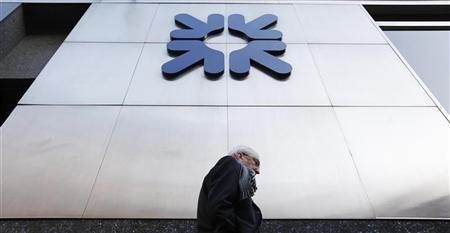EXCLUSIVE Mis-Selling Derivatives: Property Partnership Takes RBS to Manchester High Court

Two businessmen in a property partnership have taken RBS to Manchester high court over being allegedly mis-sold an interest rate swap agreement (IRSA) attached to a loan in the latest example of companies and individuals bypassing the Financial Services Authority's (FSA) Review of banks.
Sources close to the case told IBTimes UK exclusively that in a hearing with Judge David Waksman which finished on 6 December, the partnership claimed that when it took out a £1.5m ($2.4m €1.8m) loan with RBS, the bank had not fully explained the components of the IRSA attached to the loan, its risks or the breakage costs of nearly a quarter of a million pounds.
Sources added that from the outset of the partnership taking out the loan in 2005, the duo had always said that there was a high chance of the partnership attempting to refinance it sometime in the next 10 years.
They argued that because of that chance and the high cost of exiting the product, it would have sought a different product at the time had the IRSA been properly explained by the bank.
The partnership claimed in court that RBS had said the IRSA "would be free".
Sources in court confirmed that details of the case will not be made public until judgment has been served. Judgment could be delivered by as early as next week.
The partnership is claiming two forms of redress from RBS - repayments made on the IRSA and damages awarded from "business interference" claims.
The law firm representing the partnership declined to comment.
A spokesperson at RBS told IBTimes UK that it "does not comment on ongoing legal proceedings".
IRSAs are contracts between a bank and its customer where typically one side pays a floating, or variable, rate of interest and receives a fixed rate of interest payments in exchange.
They're used to hedge against extreme movements in market interest rates over a given period. Companies that have seen the value of these products move against them as rates fell during the recession, now owe banks crippling sums of money in interest payments each year.
Only recently, IBTimes UK revealed that Barclays is suspending IRSA payments for some small to medium enterprises (SME) that are facing financial distress.
On 29 June, Barclays, HSBC, Lloyds and RBS were banned by the FSA from selling these products to SMEs again and under an agreement, were asked to review the 40,000 products sold to determine if mis-selling had taken place, as well as what compensation would be due.
According to sources close to the banks, HSBC, Barclays, RBS and Lloyds have each been tasked by the FSA to present 50 cases each, as a "pilot scheme" for the review. Since there is no deadline set for the banks to come to a decision on these cases, sources say that the outcome of these pilot reviews could be unveiled as late as the second quarter of next year.
Meanwhile, companies or individuals like the property partnership in this story are looking to bypass the FSA Review Scheme, after years of claiming to be ignored by the banks.
However, coverage of the active or resolved cases is difficult to document due to confidentiality clauses that are usually embedded in the settlement procedure.
© Copyright IBTimes 2025. All rights reserved.






















